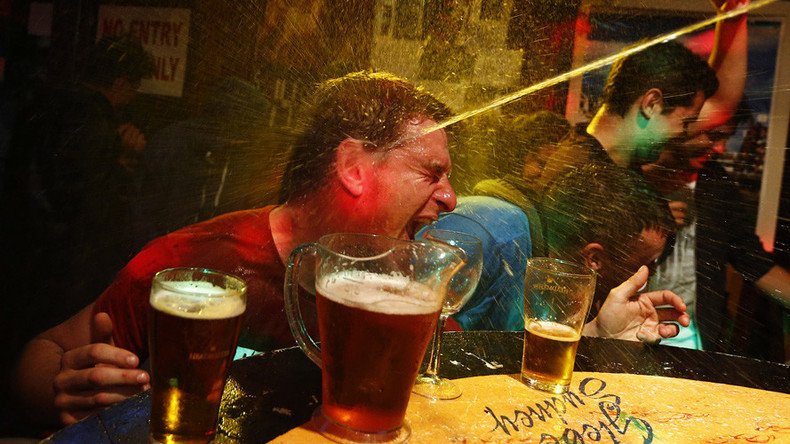This is what happens to your brain when you drink alcohol (VIDEO)

With the holiday season in full swing, the American Chemical Society has taken the time to put together a handy explainer on what actually goes on in your brain while you’re downing drinks.
And what better rationale to explain sending a drunken text to an ex-partner or an unfortunate foray on the dance floor at the office Christmas party than actual hard science.
The video starts by pointing out that alcohol contains ethanol, which slows you down and loosens you up. But ethanol also affects your memory, so the more you drink, the less you will remember.
This is what can cause a dreaded blackout, leaving you to scramble together memories from the night before, after a period of heavy drinking.
It's the holidays. Sit back, relax, open a cold one and watch how that beer gets you drunk: https://t.co/rjqPr82udE
— Reactions (@ACSReactions) December 28, 2016
Ethanol also causes the brain to produce stimulants like adrenaline and cortisol, enhancing your senses, increasing your heart rate and getting you party-ready.
And then dopamine kicks in - the reassuring chemical that essentially tells you that you’re having a good time.
It all makes sense so far but one burning question remains: why do we have to pee so often after a few tipples? It turns out that this is because ethanol blocks the antidiuretic hormone, making you feel like you need to pee regularly.
The video also explores the darker effects alcohol can have, such as messing with your body temperature to make you feel warmer than you actually are - a serious danger to drinkers in colder climates.
And if you’re looking for someone to blame for your New Year’s hangover, you can pin it on the receptors GABA and NMDA. While the fun stimulant effects wear off, these two build up - leaving you unable to muster the energy to even get off the couch the next day.












